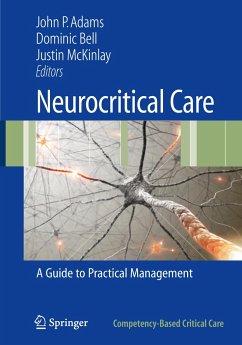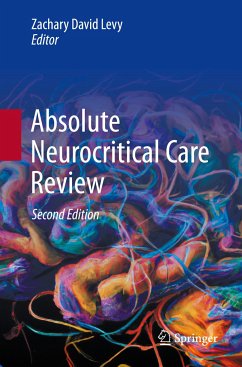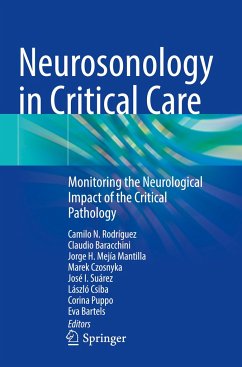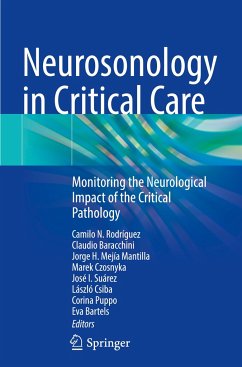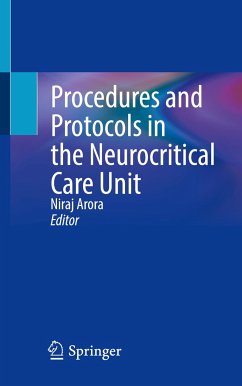
Neurocritical Care for Neurosurgeons
Principles and Applications
Herausgegeben: Figueiredo, Eberval Gadelha; Welling, Leonardo C.; Rabelo, Nícollas Nunes
Versandkostenfrei!
Versandfertig in 1-2 Wochen
165,84 €
inkl. MwSt.

PAYBACK Punkte
0 °P sammeln!
This unique book discusses the management of neurocritical care patients, including basic concepts, pathophysiologic principles, monitoring, treatment indications, and factors that affect outcomes in patients requiring neurocritical care assistance.It addresses the need to improve continuing education in this area, highlighting patient care in the perioperative period. This is the first book to provide a simplified overview for neurosurgeons and neurologists to understand the neurocritical patient journey. It is divided into three parts: the first covers the basics concepts, from monitoring to...
This unique book discusses the management of neurocritical care patients, including basic concepts, pathophysiologic principles, monitoring, treatment indications, and factors that affect outcomes in patients requiring neurocritical care assistance.
It addresses the need to improve continuing education in this area, highlighting patient care in the perioperative period. This is the first book to provide a simplified overview for neurosurgeons and neurologists to understand the neurocritical patient journey. It is divided into three parts: the first covers the basics concepts, from monitoring to the interpretation of exams; the second explores general management of specific situations encountered in intensive care and the last part includes prognostic and rehabilitation models, as well as new perspectives. Thanks to the accessible, neurosurgical specific language, the book is well suited for all professionals involvedin neurocritical care, including students, but is also a valuable resource for residents and researches, as well as experienced neurosurgeons or neurologists looking for updated information and guidelines.
It addresses the need to improve continuing education in this area, highlighting patient care in the perioperative period. This is the first book to provide a simplified overview for neurosurgeons and neurologists to understand the neurocritical patient journey. It is divided into three parts: the first covers the basics concepts, from monitoring to the interpretation of exams; the second explores general management of specific situations encountered in intensive care and the last part includes prognostic and rehabilitation models, as well as new perspectives. Thanks to the accessible, neurosurgical specific language, the book is well suited for all professionals involvedin neurocritical care, including students, but is also a valuable resource for residents and researches, as well as experienced neurosurgeons or neurologists looking for updated information and guidelines.




